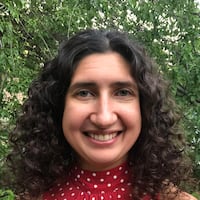In an attempt to balance public engagement with Gwinnett County’s unrelenting growth, the county commission is considering an earlier start and other changes to monthly land use hearings after last month’s adjourned past 1 a.m.
“Enough’s enough,” District 1 Commissioner Kirkland Carden told The Atlanta Journal-Constitution after proposing changes last week to the rest of the board and county staff. “It’s just bad practice to do county business at 1 o’ clock in the morning. That’s not very transparent.”
Staffers and sheriff’s deputies are required to stay until the meetings conclude, and some members of the public join them, especially for cases at the end of the agenda.
The county planning commission, which makes recommendations on zoning and permit requests, has already increased the frequency of its meetings from once to twice monthly to keep up with the case load.
After the planning department and planning commission, zoning and permit requests go to the board of commissioners, which generally hears them beginning at 7 p.m. on the fourth Tuesday of every month. In the past two years, the county commission’s zoning hearings have typically lasted at least four hours, but sometimes a thick agenda stretches them longer.
Carden surveyed all 159 county commissions in Georgia and found that only much smaller counties, with comparatively short agendas, begin their zoning hearings as late as Gwinnett. He suggested starting the Gwinnett zoning hearings at 5:30 p.m., like in DeKalb County.
Carden suggested further streamlining meetings by sending some cases to a consent agenda, as Cobb County does.
In Cobb, staffers place cases on a consent agenda if commissioners have worked with applicants and neighbors and everyone seems to agree, said Keli Gambrill, a commissioner who previously spoke at zoning hearings as a neighborhood advocate.
At the beginning of each hearing, consent agenda cases are read into the record but those filing the application do not present, Gambrill said. If there is an objection to a consent case, the person raising it and the applicant or attorney leave the room to discuss it while the meeting continues, Gambrill said. If their differences can’t be worked out, the case is moved to the regular agenda for commissioners to hear the presentation and objections, she said.
“There is the assumption that you know what’s going on in your community prior to coming there,” Gambrill said. “Consent, to me, means there was a lot of work done before the hearing.”
Gwinnett Commissioner Jasper Watkins said the commissioners — including himself — needed to do a better job preparing for each hearing so they don’t spend as much time asking questions themselves.
Gwinnett County’s staff attorneys and County Administrator Glenn Stephens have expressed reservations about instituting a consent agenda, in part because the applicants’ presentations would not take place for consent cases. Many people in the audience don’t intend to speak on certain cases but decide to after hearing something in a presentation, county officials said.
“I don’t know if it matches up with y’all’s values of transparency and openness,” Stephens said.
About the Author
Keep Reading
The Latest
Featured



